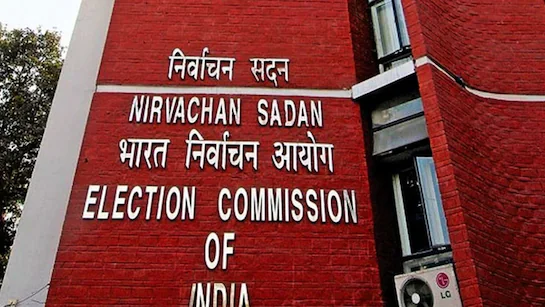In a swift response to mounting concerns over alleged electoral fraud, the Election Commission of India (EC) has announced a significant procedural change: Aadhaar-linked mobile numbers will now be mandatory for voters seeking to delete their names from the rolls online. The move comes in the wake of Congress leader Rahul Gandhi’s sharp criticism over alleged irregularities in the voter list in Karnataka’s Aland constituency.
Rahul Gandhi recently accused the ruling establishment of manipulating voter rolls in Aland, calling it a “fraud on democracy.” His allegations added urgency to the long-standing debate over how to make the electoral process more transparent and resistant to misuse. By introducing Aadhaar verification into online voter deletion requests, the EC aims to close loopholes that may have allowed bogus applications or politically motivated mass deletions.
Until now, voters could request the deletion of their names through an online portal with basic identity details. However, this system was vulnerable to potential misuse, with reports of fraudulent applications being filed without proper consent. The new Aadhaar-linked phone verification ensures that only the rightful voter, whose identity is authenticated via India’s unique identification system, can initiate such a sensitive change.
Officials at the Election Commission have emphasized that this measure is not only about preventing misuse but also about streamlining the process. “The integrity of electoral rolls is the backbone of free and fair elections. By making Aadhaar-linked numbers mandatory, we are ensuring a higher level of authentication,” a senior EC official stated.
Critics, however, have raised concerns about the privacy implications of linking Aadhaar with electoral rolls. Civil liberties groups have long argued that mandatory Aadhaar linkage risks exclusion and surveillance, particularly for marginalized communities. The EC has sought to balance these concerns by clarifying that physical voter deletion requests at local offices will remain available for those who cannot use Aadhaar-linked phones.
Politically, the timing of the decision is telling. Rahul Gandhi’s ‘Aland fraud’ charge has amplified the opposition’s narrative of a compromised electoral process, while the government and the EC are keen to project an image of proactive reform. The new measure serves both purposes: it addresses concerns about manipulation while reinforcing the EC’s commitment to credibility.
The impact of this change will likely be felt nationwide. As India gears up for a fresh cycle of elections in several states, and with the 2029 Lok Sabha polls not too far away, the sanctity of voter rolls will remain a central issue. A more secure, Aadhaar-linked system could reduce disputes over fake voters or wrongful deletions, but it will also test how well the EC can balance security, accessibility, and privacy in the digital age.
In conclusion, the EC’s latest move represents both a technical upgrade and a political response. By mandating Aadhaar-linked phones for online voter deletions, it aims to strengthen electoral transparency while signaling that it is responsive to public and political concerns. Whether this change will silence critics or spark fresh debates over Aadhaar’s role in democracy remains to be seen, but it undeniably marks a new chapter in India’s evolving electoral process.



